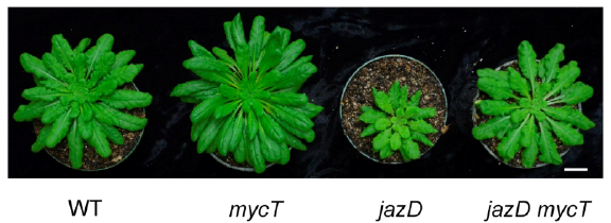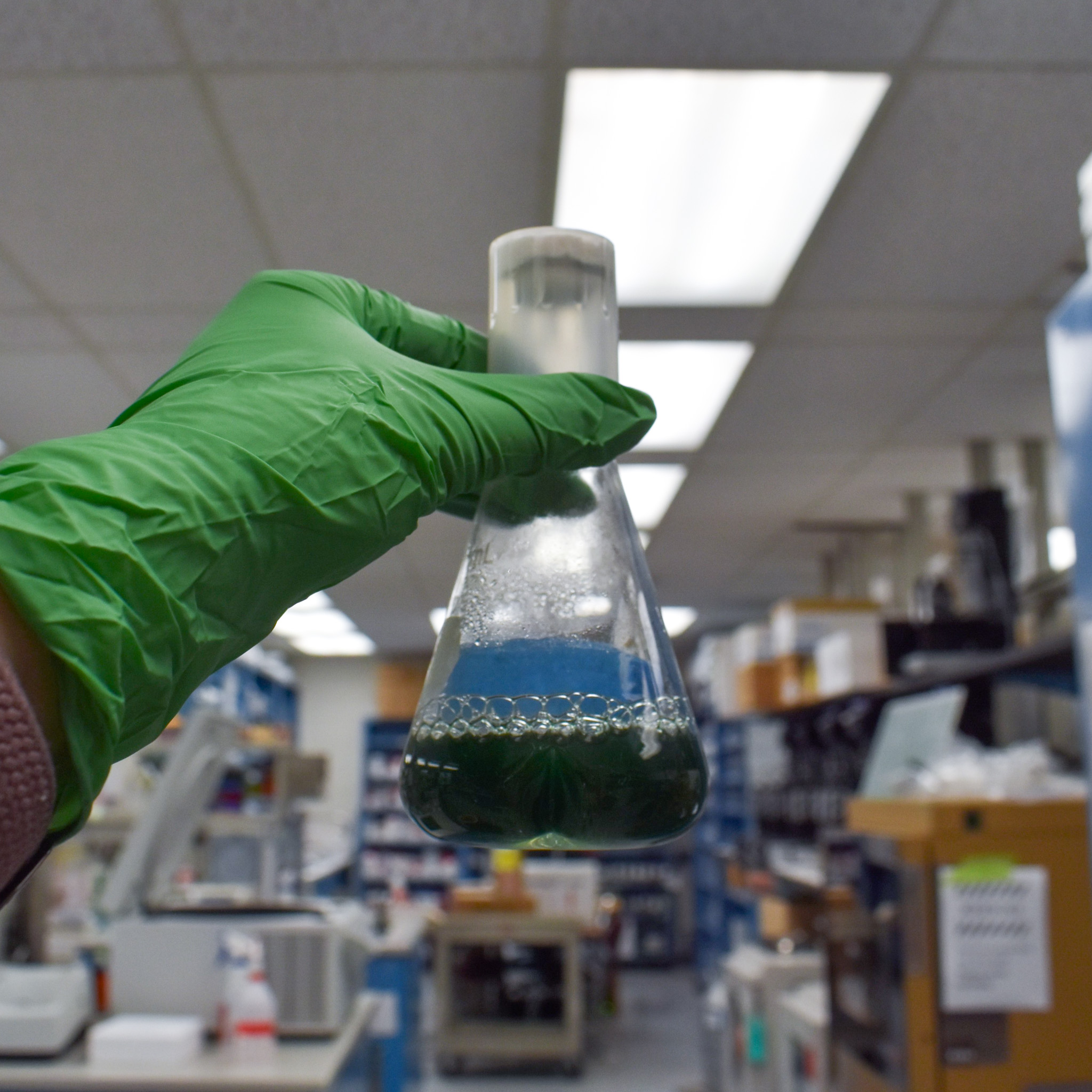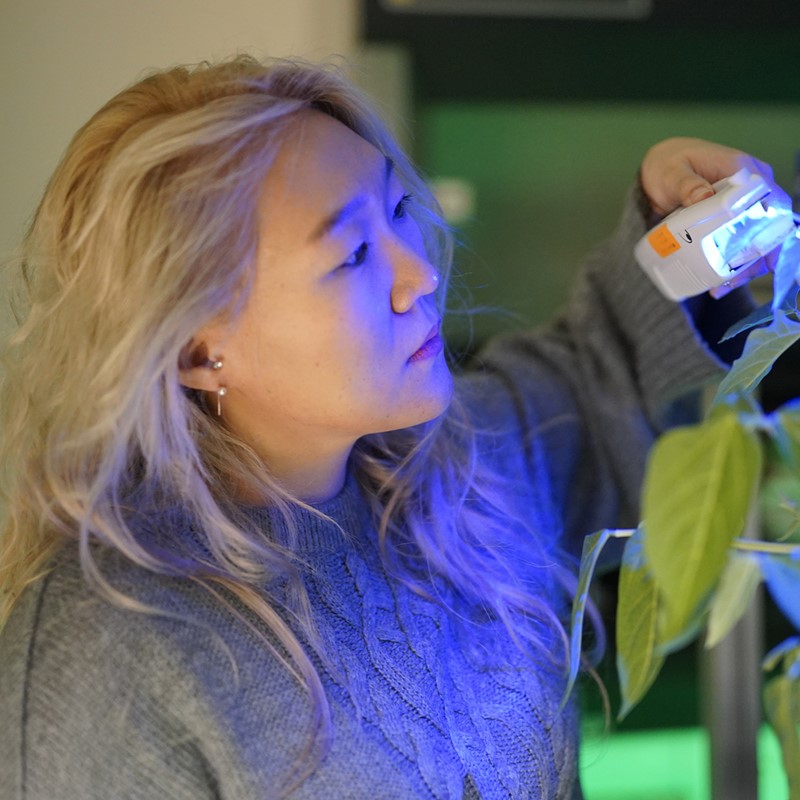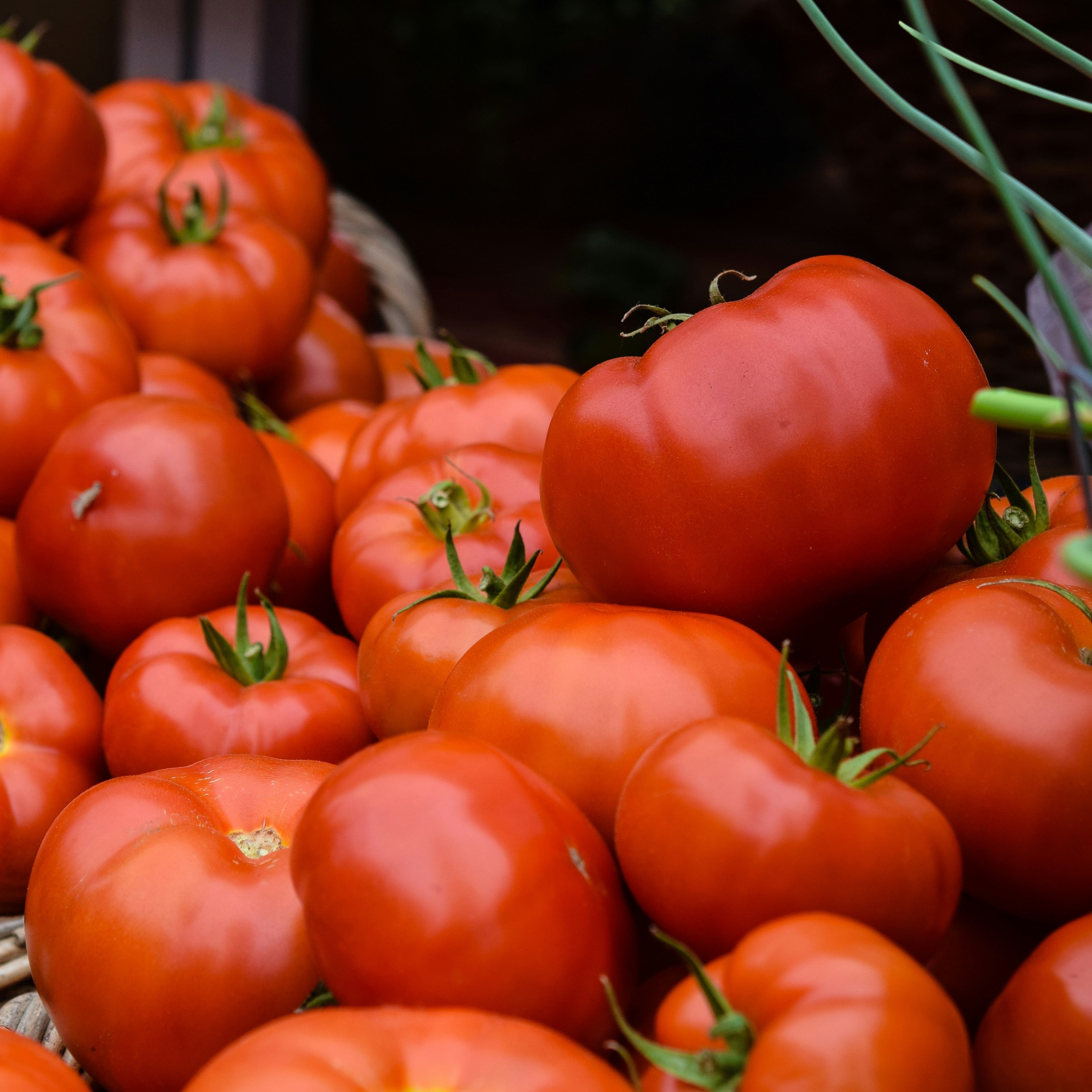Understanding how plant stress responses impair photosynthesis, growth and seed production
This study shows that plant genes called MYCs which are known for their role in promoting stress responses, potently inhibit growth and seed production.

MYC genes restrict the partitioning of photosynthetic products to growth in the model plant Arabidopsis. The loss of MYCs in a mutant lacking three MYC genes (mycT) promotes growth relative to wild-type (WT) plants. Loss of JAZ proteins in the jazD mutant strongly activates stress resistance concomitant with growth restriction. The growth-inhibitory effect of jazD is reversed upon removal of MYC genes from the jazD genetic background (jazD mycT).
By Qiang Guo
Scientific Achievement
Plants use photosynthesis to convert sunlight into various forms of chemical energy. Many of these energy-rich compounds are stored in seeds, fruits and grains of crop plants. Certain types of environmental stresses, including attack by fungal pathogens and insect herbivores, stimulate the production of protective compounds that ward off these pests. This active process of plant immunity, however, is often associated with reduced rates of plant growth and significant losses in seed yield. The fundamental mechanisms that control these tradeoffs between plant defense and growth or reproductive output are not well understood.
In this new study, members (Qiang Guo, Ian Major, George Kapali) of Gregg Howe’s laboratory used genetic approaches to generate a strain of Arabidopsis thaliana (the lab rat of the plant world) that has all the major hallmarks of a normal plant whose natural defense system is amped up: Resistance to pathogens and insects, slow growth rate and reduced seed yield. Detailed study of this Arabidopsis mutant over the course of several years led to the discovery that a regulatory gene called MYC is responsible for all three traits. Thus, while MYC is needed to switch on the plant’s active defense response, this protein also has a major negative impact on the plant’s capacity to grow and produce seeds.
Significance and Impact
Meeting the future demand for food and other plant-based products will depend on the production of new plant varieties that not only have high yields but also have the capacity thrive in suboptimal environments. These research findings by the Howe lab may inform future efforts to maximize crop productivity without compromising the plant’s ability to adapt to stressful environments. For example, members of the research team speculate that it may be possible to fine tune the activity of MYC proteins to provide an optimal balance between, growth, seed yield and stress protection.
Research Details
- Plants use photosynthesis to produce energy-rich compounds needed for growth, reproduction and protection against environmental stresses.
- Allocation of resources to protective compounds compromises growth and seed production, but the underlying mechanisms are not well understood.
- We used genetic approaches to identify a group of regulatory genes (called MYCs) that not only promote stress resistance but also impede plant growth and photosynthetic performance.
Related people: Qiang Guo, Ian T. Major, George Kapali and Gregg A. Howe
DOI: doi.org/10.1111/nph.18293
This work was supported by the Office of Science of the US Department of Energy (grant DE-FG02-91ER20021), the MSU Plant Resilience Institute and MSU AgBioResearch (grant no. MICL02278 to GAH).



